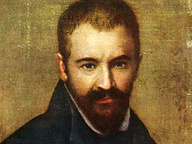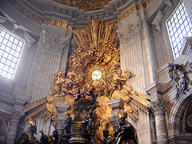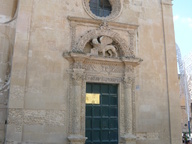Aldo Manuzio. Il rinascimento di Venezia
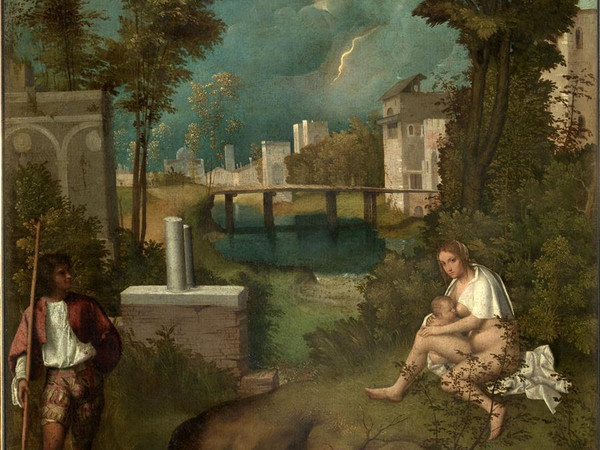
Aldo Manuzio. Il rinascimento di Venezia, Gallerie dell'Accademia, Venezia
From 19 Marzo 2016 to 31 Luglio 2016
Venice
Place: Gallerie dell’Accademia
Address: Campo della Carità 1050
Times: Monday 8.15-2pm; Tuesday to Sunday, 8.15-7.15 pm
Responsibles: Guido Beltramini, Davide Gasparotto, Giulio Manieri Elia
Organizers:
- Comitato per il V Centenario della morte di Aldo Manuzio
- Ministero dei Beni e delle Attività Culturali e del Turismo - Gallerie dell’Accademia di Venezia
Telefono per informazioni: +39 041.5200345
Official site: http://www.mostraaldomanuzio.org/
The exhibition will present the story of the man who invented the modern book and the very concept of publishing, making Venice the international capital of printing.
It will describe how Aldo’s project and his precious books were woven into a new art in Venice, nourished by publication of the Greek and Latin classics, through absolute masterpieces by Giorgione, Carpaccio, Giovanni Bellini, Cima da Conegliano, Titian, Lorenzo Lotto and Pietro Lombardo.
From 19 March to 19 June 2016, the exhibition Aldo Manuzio. Il rinascimento di Venezia at the Gallerie dell’Accademia, curated by Guido Beltramini, Davide Gasparotto and Giulio Manieri Elia, will retrace a unique and unrepeatable period in the history of European and Western culture, during which the book proved itself capable of changing the world. This gave rise to the Renaissance in Venice, a vibrant city - with more than 150,000 inhabitants in the sixteenth century it was one of the richest and most densely populated on the continent - where every kind of artistic language was able to find its most effective expression in the space of just a few decades. In the sixteenth century Venice won and definitively asserted its role as hinge between East and West, moving from being a simple platform for commercial trade to a mixing pot of cultures, traditions and knowledge. Making the most of the prodigious logistical network that only a trading city like Venice could depend on, Manuzio managed to conceive of and achieve his extraordinary programme of making the great classics available to scholars and writers for the first time: those of Greek culture, from Homer to Aristotle, Sophocles, Euripides and Thucydides, and then collecting the writings in Latin of Virgil, Cicero, Horace, Ovid, Catullus, Propertius, Lucretius, Juvenal and Martial, along with those of Jews and Italians in the new vernacular literature. It was precisely thanks to Manuzio and his work with Pietro Bembo that the vernacular was asserted alongside Latin as the language of the contemporary throughout Europe, being confirmed as such by the criteria that chose Dante, Petrarch and Boccaccio as models.
The circulation of this wealth of writings and ideas not only helped create a common European culture, capable of integrating the classical Greek-Roman sphere with the modern, contemporary world, but also encouraged the emergence of absolutely new subjects and motives in the figurative arts; masters like Giovanni Bellini, Cima da Conegliano and Jacopo de’ Barbari drew clear inspiration from the Greek and Latin classic texts, now finally also easily available to a secular readership.
Following the rediscovery of Greek and Latin poetry, painting now also looked towards nature with new eyes: the medieval ideas that had painted a hard, hostile nature populated with wild beasts having been abandoned, art opened up to portraying the landscape as the cradle of civilisation, as an earthly paradise in which man is destined to live.
The exhibition will document this move through the landscapes of Giorgione, the drawings of the young Titian, the engravings of Giulio Campagnola and the bronzes of Andrea Briosco.
An important part of the exhibition will be dedicated to the intense relationship that tied Aldo to the culture of northern Europe and to Erasmus of Rotterdam. The Dutch philosopher - who lived in Venice, guest of the Manuzio family for almost a year, in order to publish the new and definitive edition of his Adagia - not only appreciated the care taken with the Aldine editions, he thought that having his works printed by Manuzio was of fundamental importance for the circulation of his thinking throughout Europe.
The exhibition will also present the Hypnerotomachia Poliphili, Aldo Manuzio’s most famous and refined illustrated book, with imaginative woodcuts possibly made from drawings by the illuminator Benedetto Bordon.
Aldo Manuzio. Il rinascimento di Venezia is being organised by the V° Centenario della morte di Aldo Manuzio and the Ministry of Culture and Tourism with the Gallerie dell’Accademia di Venezia; and the main donor partner World Monuments Fund, in memory of George and Vera Kaestlin-Bock.
SCARICA IL COMUNICATO IN PDF
giorgione ·
tiziano ·
giovanni bellini ·
lorenzo lotto ·
cima da conegliano ·
pietro lombardo ·
carpaccio ·
aldo manuzio ·
aldo manuzio giorgione carpaccio giovanni bellini cima da conegliano tiziano lorenzo lotto pi
COMMENTI

-
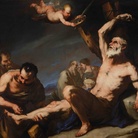 Dal 23 aprile 2024 al 01 settembre 2024
Bergamo | Accademia Carrara
Dal 23 aprile 2024 al 01 settembre 2024
Bergamo | Accademia Carrara
-
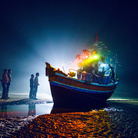 Dal 26 aprile 2024 al 09 giugno 2024
Reggio nell'Emilia | Sedi varie
Dal 26 aprile 2024 al 09 giugno 2024
Reggio nell'Emilia | Sedi varie
-
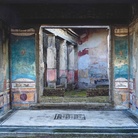 Dal 23 aprile 2024 al 16 giugno 2024
Roma | Castel Sant’Angelo
Dal 23 aprile 2024 al 16 giugno 2024
Roma | Castel Sant’Angelo
-
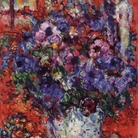 Dal 20 aprile 2024 al 27 ottobre 2024
Conversano | Castello Conti Acquaviva D'Aragona
Dal 20 aprile 2024 al 27 ottobre 2024
Conversano | Castello Conti Acquaviva D'Aragona
-
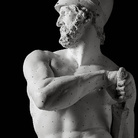 Dal 20 aprile 2024 al 29 settembre 2024
Possagno | Museo Gypsotheca Antonio Canova
Dal 20 aprile 2024 al 29 settembre 2024
Possagno | Museo Gypsotheca Antonio Canova
-
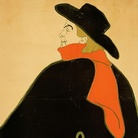 Dal 20 aprile 2024 al 21 luglio 2024
Torino | Mastio della Cittadella
Dal 20 aprile 2024 al 21 luglio 2024
Torino | Mastio della Cittadella

